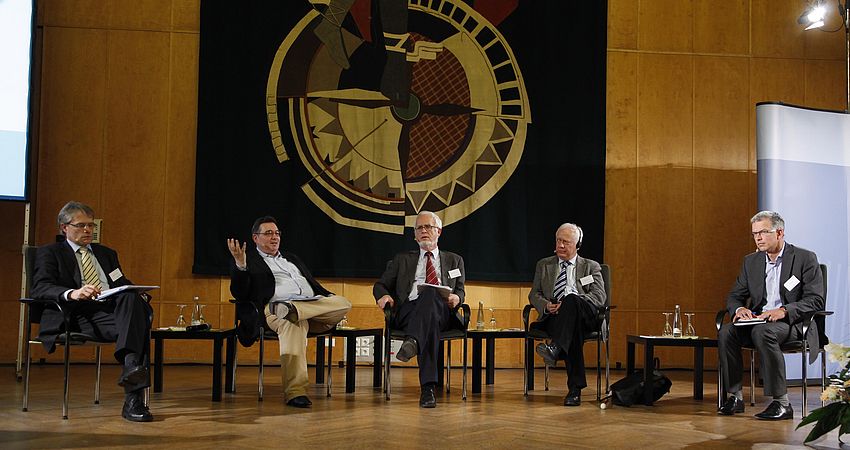Laboratory of Life. The Significance of Synthetic Biology for Science and Society

Podiumsdiskussion (v. l.): Prof. Dr. rer. nat. Bernd Müller-Röber · Deutsche Akademie der Technikwissenschaften (acatech), Prof. Dr. phil. Klaus Peter Rippe · Eidgenössische Ethikkommission für Biotechnologie im Ausserhumanbereich (EKAH), Wolf-Michael Catenhusen · Mitglied des Deutschen Ethikrates, Pat Roy Mooney · ETC Group, Prof. Dr. rer. nat. Ralf Wagner · GENEART AG, Deutscher Ethikrat, Fotograf: Reiner Zensen
Topic
Synthetic biology combines elements of molecular biology, biotechnology, engineering and information technology into a new discipline. Its aim is to modify living systems, primarily microorganisms, or to engineer them with desired properties for industrial applications.
Synthetic biology’s potential for innovation and the expectations that science and industry place in it are high. A wide range of possible applications in the biotechnological and medical industries is already emerging – for example for the production of fuels or new materials, for use as biosensors or for the development of new medicines and vaccines. This points to the huge economic potential of synthetic biology.
The new field of research and its predicted capabilities to design and create forms of life independently of existing ones indicate a qualitatively new level and scope concerning the way humans deal with life. The German Ethics Council aims to bring the resulting ethical challenges into the focus of public debate by considering the following aspects:
- What distinguishes synthetic biology from conventional biotechnology and what is its potential?
- How does the media depict synthetic biology and how is it perceived by the public?
- With regard to further developments, does synthetic biology involve risks requiring a special duty to protect on the part of the state?
- What ethical and social implications arise from the “creation of artificial life”?
The aim of the event is to shed light on the current state of synthetic biology from the perspectives of natural science, technology assessment, philosophy and ethics, as well as to address its perception in society. To this end, the German Ethics Council initiates an exchange with experts from science, industry and non-governmental organisations, as well as with the general public.
